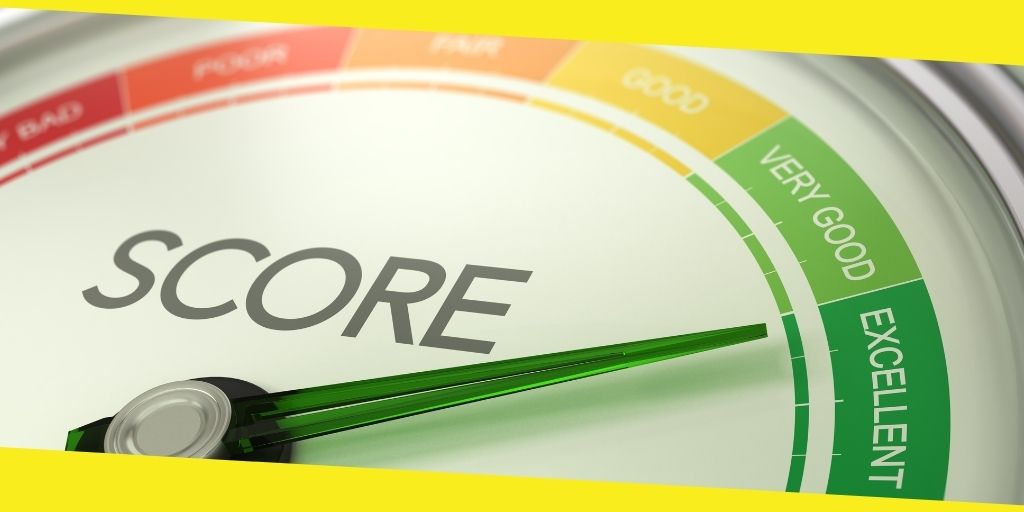How Debt Affects Your Credit Score
This post was last updated on March 24th, 2025

The debt one bears compared to their credit score has always been a major cause of confusion in society. Contrary to what many think, debt alone can’t affect your credit score as much as your capability to pay it off can. Findings from different studies show that most Americans believe accruing a considerable amount of debt will affect their credit score.
Well, this is partly true, but findings also show that people with high amounts of debt tend to have the best credit scores. In relation to debts and credit score, how does debt affect your score when you can owe huge sums of money and still maintain a positive score?
Is Excessive Debt a Bad Thing?
Like we mentioned above, most people who have a low amount of debt usually have a poor or low credit score. This can confuse many, especially when repayment habits have not been factored in. Those with credit scores that fall between 300 to 570 had an estimated personal debt of about $38,324 compared to those who recorded a higher score. They accrued about three times the amount we have mentioned. This is an indication that credit reporting bureaus are considering more than the debt amount consumers carry. The repayment ability for your debts will have a more positive impact on your score compared to the amount of debt you take.
With this taken into account, you don’t have to increase your debt amount if you want to boost your credit score. The best you can do is to pay off the debt you have on time as it will have a more positive impact on your score compared to using different credit cards and not paying them back. You should also consider getting different types of credits, like credit products and loans, to prove that you can repay different types of debt. Borrowers with a great combination of credit products in their records usually have a higher score compared to those with only one kind of debt.
What Can Be Used to Determine Your Credit Score?
If the debt amount you have accrued does not affect your credit rating, what does? Generally, there are five key factors used to determine your credit score. Some of them are considered more important compared to others. They can also make your score increase and reduce with time. These factors include:
- Age of credit accounts
- Payment history
- New credit inquiries
- Amount of debt in comparison to the amount of credit utilized
- The mix of credit accounts
Even though there is no stated limit to the debt you can have, you are advised to use about a third of the credit card available at any given moment. If you max out your cards or carry a lot of loans you are unable to repay, your score will be affected to a certain extent.
The debt amount you owe various accounts for about 30% of your general score. Commonly referred to as your credit utilization ratio, this is the debt amount you have in relation to the extended credit. A perfect example is if $200 is charged on a card that has a $1000 limit, the credit utilization ratio will stand at 20%. The best you can do is maintain your credit utilization below 30%. Those with a higher credit score are much better with 10 per cent as their goal. If you have excessive debt as compared to credit, then you will be listed as a high-risk borrower by several lenders.
What Kind of Debt Do You Carry?
Like we stated earlier, the debt type you carry can seriously affect your overall score. Persons with the best credit score can access different types of credit products. Examples include credit cards, instalment loans, and mortgages. The kind of debt you have makes up 10% of your credit score rating. You should have a collection of different credit products. You will not be rewarded for carrying excessive debt, so even when you lack a decent collection of various credit products under your name, you should be ready to repay them on time.
The Benefits of Repayment
If you are dealing with credit cards, you are advised to keep your balances low all the time. Credit utilization rates will be very high if your balances are also too high. This will give creditors the view that your expenditure is too high or you are spending beyond your means. When you make timely repayments for your debt, you will minimize the chances of interest accruing because you can only accrue one when you carry a balance. If a debt remains on your record for an extended period, then you will have to pay more interest with time. This is to mean that paying off your debt on time will impact your bank account positively and can also save you a lot of money.
Repayment also helps lenders understand that you are a responsible person and your chances of paying back on time are much higher. No one is ready to lend money to anyone who will not pay back, so repaying your debt, no matter the amount you have accrued is always good on your end.
You must develop good repayment habits that will ensure you have paid your debt on time. One thing you can do is make partial payments that will see you pay the full amount before the deadline date. This could be daily, weekly or monthly payments depending on the loan period.
Setting reminders is also essential in ensuring that your loan is paid back on time. This could be phone or email notifications that remind you to complete paying back your loan on a specific date. You should assess your needs carefully to ensure the borrowed amount is utilized correctly. Responsible borrowing is essential if you want to maintain a positive score because you will use your money on activities that will make you earn even more and make timely repayments. How about you pay off your debt on time to boost your credit score.
Most Inside
Most Inside offers high-quality recommendations and valuable updates to enhance all aspects of your life, providing premium guidance and enriching experiences.




